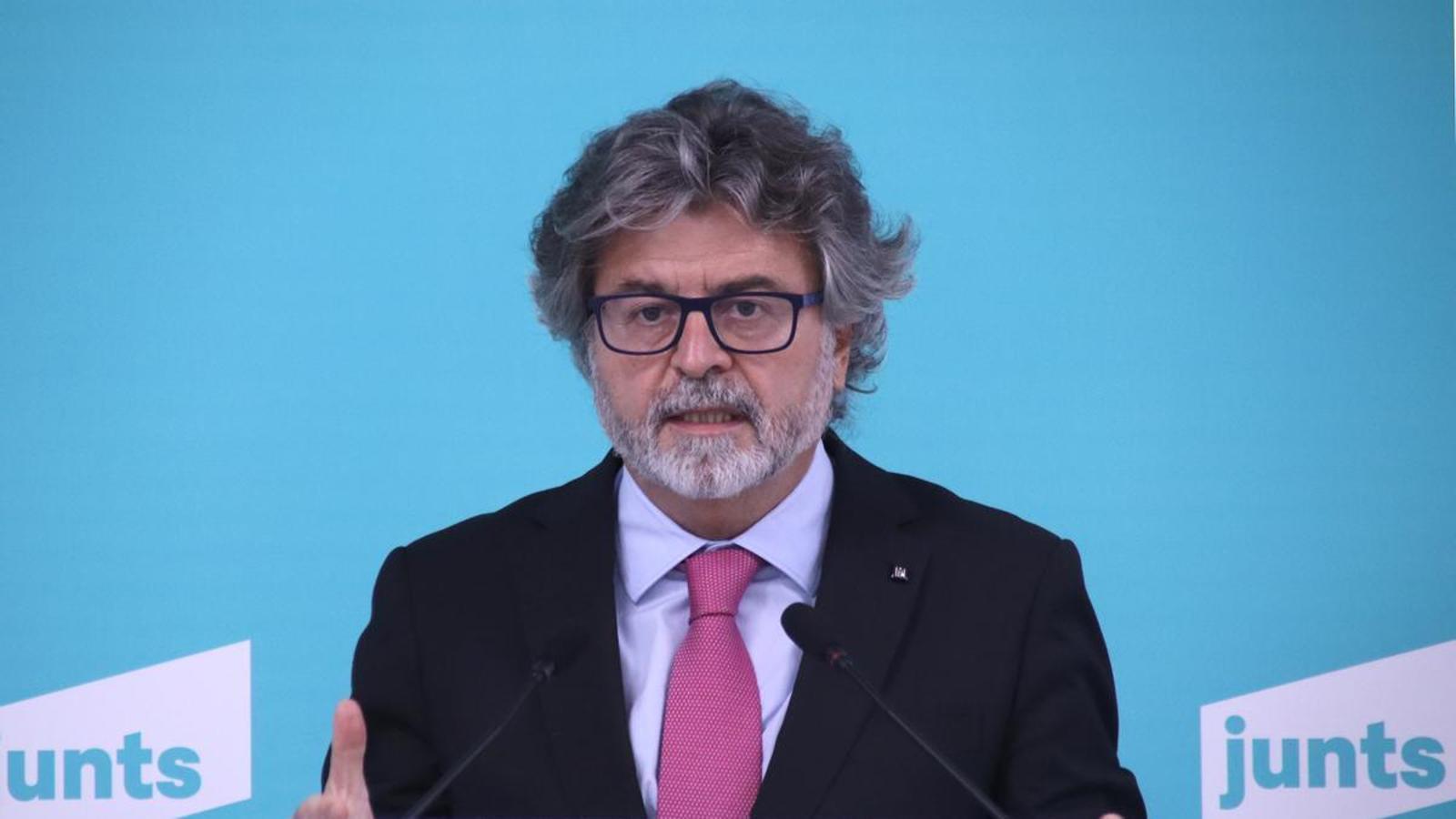Juntos threatens to cancel financing: "It's not like the economic agreement."
Compromís warns that without the Valencian Community, "absolutely nothing" can be agreed upon.

BarcelonaBefore the meeting between the State and the Generalitat (Catalan Government), the Minister of Economy, Alícia Romero, convened the Catalan parliamentary groups to explain the content of the pact. This explanation was provided out of courtesy, but it has generated criticism of the agreement from the start of the day. The Vice President of Junts, Toni Castellà, stated in a press conference that the new model "does not resemble the economic agreement" and that the agreement of the Generalitat-State Bilateral Commission is "disappointing." "When the Socialists sit on both sides of the table, Catalonia loses," Castellà stated, adding that for the regional government members, "there is no new financing model." "There is not one euro more for Catalonia [...]. It is far from what is needed," he concluded, stating that it amounts to "extending" the fiscal deficit.
Castellà also considered that the possibility that it would be the Generalitat's civil servants, rather than the state's, who could collect personal income tax does not give the executive more self-governance but only "administrative work." "We will do the work for the state, and it will be the state that decides how much money stays here," he summarized, emphasizing that the regional government advocates for the "transfer of all taxes" to Catalonia and also the sovereignty to decide how many taxes return to Madrid. In this regard, he said they are also negotiating with the PSOE for funding along these lines, noting that it is part of the Brussels agreement they signed to inaugurate Pedro Sánchez. However, he admitted that without any progress, "the Spanish prime minister's term is under extension, and it is coming to an end."
Thus, the Junts deputy also questioned whether the agreement is a step forward for Catalonia, because it does not imply its withdrawal from the common system of autonomous communities, leaving his support for the Congress of Deputies in the air. "There is no reason for Junts to endorse the proposal," he said, adding: "Anything that comes close to being a separate law to exit the LOFCA and achieve its own sovereignty will have our support; anything that falls far short of our agreement model will not have our support."
It must be taken into account, therefore, that the new financing must go through the Congress of Deputies and must obtain the endorsement of the plurinational majority. Until now, not only Junts had expressed doubts, but also several parties such as Compromís. The Valencian party's own spokesperson, Joan Baldoví, has warned that the revision of the model cannot be limited solely to Catalonia and made it clear that without the Valencian Community, "absolutely nothing can be agreed upon." In this regard, sources within the party have pointed out that without Valencian funding, Compromís will not support the proposal for Catalonia in Congress.reports Andrea Zamorano.
Specifically, Yolanda Díaz's party, to calm things down, welcomed the opening of the debate on financing, but stressed that we are in an "incipient" phase. In her opinion, we must take advantage of the reform to eliminate the possibility of Isabel Díaz Ayuso's Community of Madrid lowering taxes: "Let's remember that it has practically eliminated the wealth tax, but then asks the State for more resources. This way, it ends up being the citizens of Galicia or Castilla y León who have to pay the highest reductions."
The Commons, optimistic
The assessment of Junts and Compromís contrasts with that of the Comuns, which are partners of the PSC in the Government and are part of Sumar. For the spokesperson in Parliament, David Cid, the new financing model is a "step forward" and he is also optimistic about the support the model can garner (the LOFCA and two other derived laws must be reformed) in Congress. This attitude contrasted with Esquerra, also a partner of the PSC and promoter of the new financing, which was more skeptical: "There is less staging and more concreteness."
As for the rest of the parliamentary groups, they chose not to attend the meeting with the Catalan government on the new financing: neither the PP, Vox, nor Aliança Catalana were present, nor were the CUP. From the anti-capitalist party, Laia Estrada did have her say. She considered these types of meetings to be a "real farce" and that their objective is "to disguise the fact that the Generalitat is presided over by the delegate of the Moncloa." "We do not want to legitimize a marketing operation by the PSC," she emphasized. In her opinion, the unique financing "is a fake, as well as the transfer of commuter trains." The PP, in a press conference from its headquarters, criticized the financing proposal for not being "unique and generalizable" at the same time: "We don't believe it," said the general secretary of the Popular Party, Santi Rodríguez.
